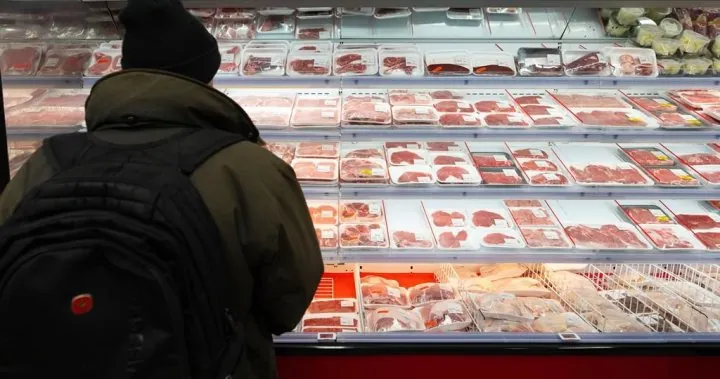
Shocking Lawsuit Alleges Major Grocery Chains Are Cheating Customers on Meat Weights!
2025-01-14
Author: Liam
Lawsuit Overview
A proposed class-action lawsuit has been filed in British Columbia that targets major grocery giants Loblaw, Walmart Canada, and Sobeys for allegedly misrepresenting the weights of their meat products. The crux of the case revolves around the claim that these retailers have been including the weight of packaging in their pricing, effectively misleading customers about the actual quantity of meat they are purchasing.
Lead Plaintiff's Claims
The lead plaintiff, Carrie Corrall, is a mother from British Columbia who frequently spends "hundreds or thousands of dollars" each year on various meat products. The lawsuit was initiated in a Federal Court in Vancouver on January 9 and seeks to hold the grocery chains accountable for what it describes as “deceptive means” of pricing that violate both federal and provincial regulations.
Impact on Consumers
According to the statement filed in court, this practice has resulted in Canadians "regularly overpaying for meat" at the accused grocery stores. Furthermore, the timing of this legal action could not be more poignant, as it comes during a period of soaring inflation, where many consumers are already feeling the pinch of high food prices. The lawsuit is pursuing punitive damages, emphasizing that these retailers have publicly committed to keeping prices low, all while allegedly “discretely overcharging” their customers.
Current Status of Allegations
It’s important to note that none of these allegations have yet been proven in court, and as of the latest updates, representatives from Loblaw, Walmart Canada, and Sobeys have not commented on the lawsuit. The ongoing conversation surrounding food prices gained momentum following a recent investigation by CBC News, which unveiled these concerning practices.
Response from Loblaw
In response to the report, Loblaw acknowledged the discrepancies and issued a statement regarding the issue, attributing it to a "small number of meat products sold in select stores in Western Canada." They explained that the inaccuracies arose during the transition to more environmentally friendly meat packaging, which has since been rectified.
Company Measures and Future Implications
Loblaw emphasized that they have implemented “robust internal processes and controls” to prevent errors, but acknowledged that operational mistakes can still occur. As this story continues to develop, consumers are left wondering how deep the deception really runs in the grocery industry. Can we trust major chains with our grocery budgets, or are shoppers unknowingly falling victim to a system rigged against them? The lawsuit’s outcome could have significant implications for consumers and retailers alike—stay tuned for more updates on this unfolding controversy!



 Brasil (PT)
Brasil (PT)
 Canada (EN)
Canada (EN)
 Chile (ES)
Chile (ES)
 Česko (CS)
Česko (CS)
 대한민국 (KO)
대한민국 (KO)
 España (ES)
España (ES)
 France (FR)
France (FR)
 Hong Kong (EN)
Hong Kong (EN)
 Italia (IT)
Italia (IT)
 日本 (JA)
日本 (JA)
 Magyarország (HU)
Magyarország (HU)
 Norge (NO)
Norge (NO)
 Polska (PL)
Polska (PL)
 Schweiz (DE)
Schweiz (DE)
 Singapore (EN)
Singapore (EN)
 Sverige (SV)
Sverige (SV)
 Suomi (FI)
Suomi (FI)
 Türkiye (TR)
Türkiye (TR)
 الإمارات العربية المتحدة (AR)
الإمارات العربية المتحدة (AR)